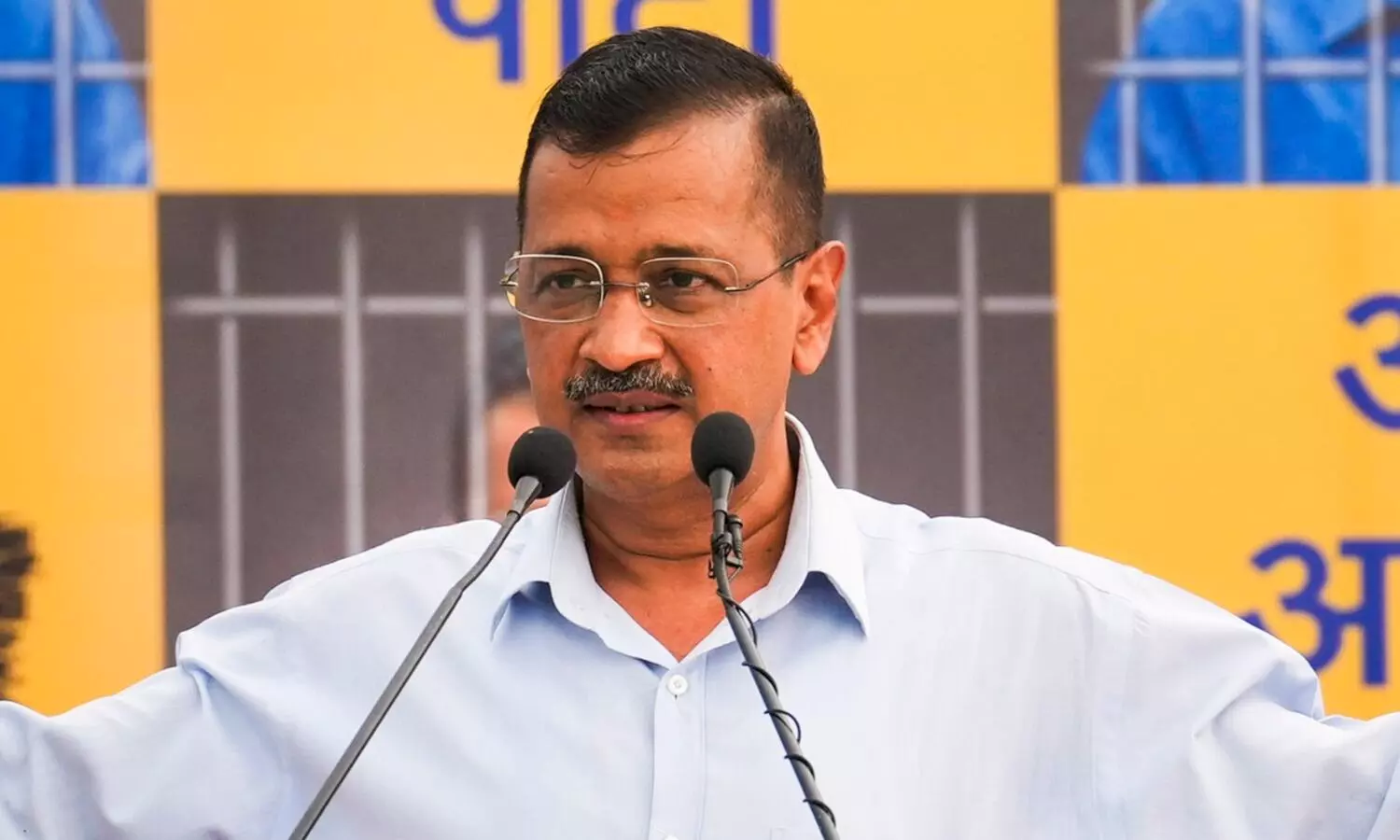CBI files final charge sheet in excise policy case against Kejriwal; HC reserves order

New Delhi: The Delhi High Court on Monday reserved its order on the bail plea by Chief Minister Arvind Kejriwal in the corruption case stemming from the alleged excise policy scam. The verdict was reserved by Justice Neena Bansal Krishna after hearing the counsel appearing for the AAP leader as well as the Central Bureau of Investigation (CBI). The CBI opposed Kejriwal's bail plea in the case, saying he was the "sutradhaar" of the excise scam and if released, he could influence the witnesses. "The investigation could not have been concluded without his arrest. Within a month we filed the charge sheet," said CBI's counsel advocate D P Singh.
Earlier in the day, the CBI filed its final charge sheet in the trial court against the chief minister and five others, including AAP MLA Durgesh Pathak. Senior advocate Abhishek Manu Singhvi, appearing for Kejriwal, contended that the arrest was an “insurance arrest” to ensure that he does not come out of jail. He emphasised that there was no direct evidence against the AAP chief and the investigating agency apprehended him based on presumptions and hypothesis. Kejriwal was arrested by the CBI on June 26 from Tihar Jail while he was lodged in judicial custody in a connected money laundering case filed by the ED.
Concluding its probe in the alleged Delhi excise policy scam, the CBI on Monday filed its final charge sheet in the case against Chief Minister Arvind Kejriwal and five others, including AAP MLA Durgesh Pathak, officials said. The federal probe agency had earlier filed a main charge sheet and four supplementary in the case in which former Delhi deputy chief minister Manish Sisodia, Telangana MLC K Kavitha and 15 others have also been charged. It said the charge sheet filed on Monday is the final one in the case. The CBI has named Kejriwal, AAP MLA Durgesh Pathak, non-executive director of Aurobindo Pharma P Sarath Chandra Reddy, director of Buddy Retail Pvt Ltd Amit Arora, alleged hawala operator Vinod Chauhan and businessman Ashish Mathur as accused. The probe agency has alleged that liquor businessman Magunta Sreenivasalu Reddy (now a TDP MP) met Kejriwal on March 16, 2021, at his office in the Delhi Secretariat. Reddy allegedly requested Kejriwal to provide support in his liquor business in the national capital by tweaking the Excise Policy 2021-22 which was then in the making, the CBI said in its charge sheet against K Kavitha.
Kejriwal assured support to Reddy and asked him to contact the accused K Kavitha as she was working with his team on the Excise Policy of Delhi, the CBI has alleged. The Delhi chief minister, in turn, allegedly told Reddy to provide funds to his Aam Aadmi Party, the probe agency has alleged. The CBI also claimed that kickbacks of around Rs 90-100 crore were paid in advance to some politicians of the ruling AAP in Delhi and other public servants by some persons in the liquor business from South India through co-accused Vijay Nair, Abhishek Boinpally and Dinesh Arora to tweak the 2021-22 Excise Policy. The agency had alleged that these kickbacks are found to have been returned to them subsequently out of the profit margins of wholesalers holding L-1 licenses through different modes, like issuance of excess credit notes, bank transfers, and outstanding amounts left in accounts of the companies controlled, by some conspirators from the South lobby. The CBI had alleged that a cartel was formed between three stakeholders of the said policy -- liquor manufacturers, wholesalers and retailers -- by violating provisions and against the spirit of the policy. All the conspirators allegedly played active roles in achieving the illegal objectives of the said criminal conspiracy. It resulted in huge losses to the exchequer and undue pecuniary benefits to the public servants and other accused involved in the conspiracy, the CBI has alleged.
The court's verdict on his petition challenging the arrest by CBI is awaited. The chief minister, who was arrested by the ED on March 21, was granted bail by the trial court in the money laundering case on June 20. However, the trial court's order was stayed by the high court. On July 12, the Supreme Court granted interim bail to Kejriwal in the money laundering case. The excise policy was scrapped in 2022 after the Delhi lieutenant governor ordered a CBI probe into alleged irregularities and corruption involving the formulation and execution of the policy. According to the CBI and the ED, irregularities were committed while modifying the excise policy and undue favours extended to licence holders.



